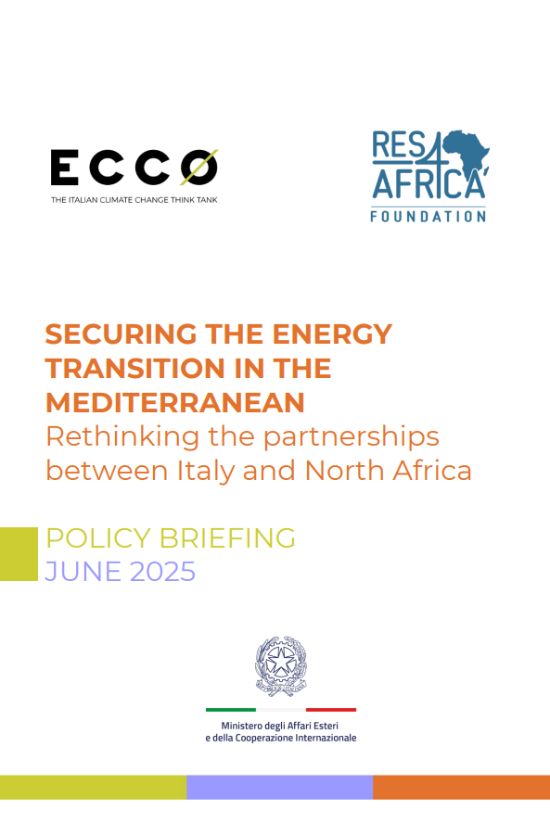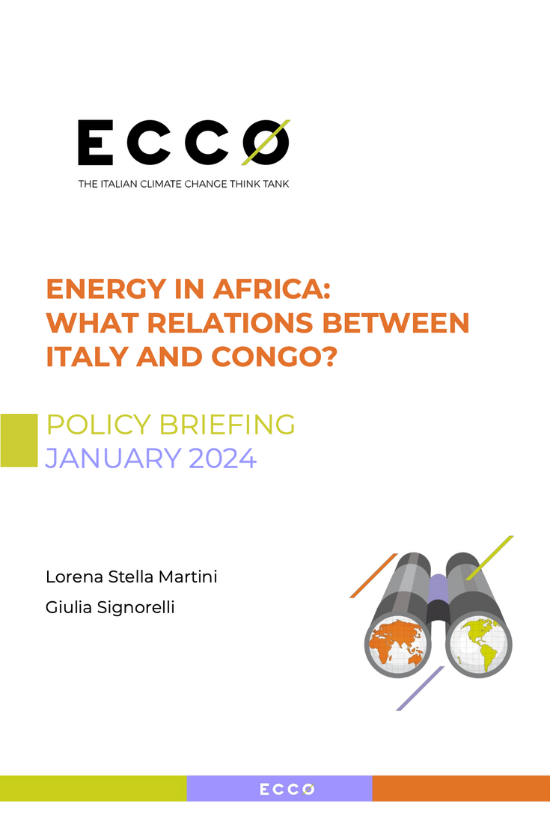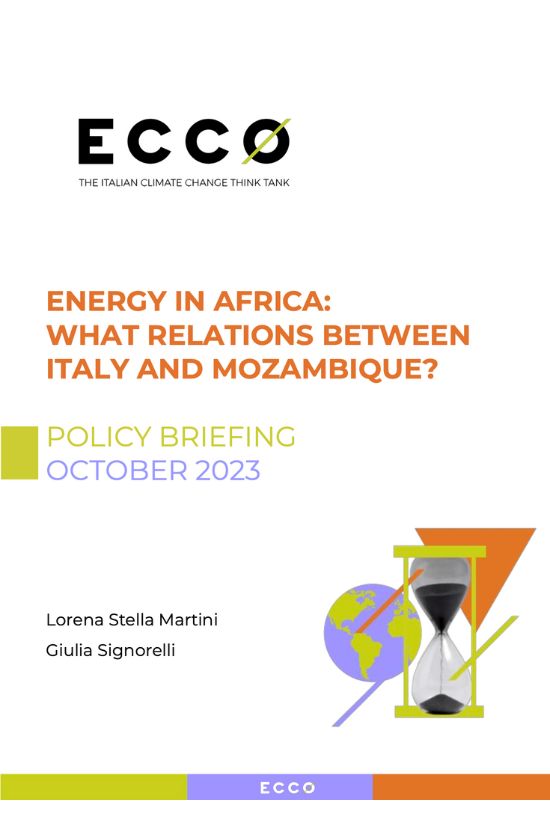Publications
Search
Filters
Authors
/ Alexandra Scott
/ Andrea Ghianda
/ Annalisa Perteghella
/ Beatrice Moro
/ Carolina Bedocchi
/ Caterina Molinari
/ Chiara Di Mambro
/ Chiara Mariotti
/ Costanza Scano
/ Davide Panzeri
/ ECCO think thank
/ Eleonora Cogo
/ Federico Tassan-Viol
/ Filomena Annunziata
/ Francesca Andreolli
/ Francesca Bellisai
/ Gabriele Cassetti
/ Giulia Colafrancesco
/ Giulia Giordano
/ Giulia Novati
/ Giulia Signorelli
/ Lorena Stella Martini
/ Luca Bergamaschi
/ Luca Iacoboni
/ Mario Noera
/ Marta Lovisolo
/ Massimiliano Bienati
/ Matteo Leonardi
/ Michele Governatori
/ Nicolas Drago
This policy brief explores the evolving nexus between energy security and energy transition within Italy’s foreign policy towards North Africa, providing recommendations on how Italy can play a leading role – including at a European level – in promoting the energy transition in the Mediterranean region through its relations with North African countries, both at a bilateral and multilateral level.
An Italy-Congo partnership based on the exploitation of fossil fuels is not the best investment for the country’s economy, as it fuels a vicious cycle of debt, poverty, inequality and corruption and lack of diversification. For Italy, such partnership is not only unprofitable in the face of a declining gas demand under all scenarios, but it would also collide with market new interests. Insisting on gas in the Italy-Congo relationship increasingly ties Italy’s foreign policy to gas policy, and away from its climate commitments.
The revival of relations between Italy and African countries needs to be contextualized within a framework of renewed interest in the African continent. In this framework, the Meloni government is working on a new strategic project for Africa, known as “Mattei Plan”, which aims at establishing equal and mutually beneficial relations with African partners, in a “non-predatory” context. Against this backdrop, Mozambique represents an extremely relevant partner for Rome, drawing on solid relations at both a governmental and civil society level.
This policy brief explores the evolving nexus between energy security and energy transition within Italy’s foreign policy towards North Africa, providing recommendations on how Italy can play a leading role – including at a European level – in promoting the energy transition in the Mediterranean region through its relations with North African countries, both at a bilateral and multilateral level.
An Italy-Congo partnership based on the exploitation of fossil fuels is not the best investment for the country’s economy, as it fuels a vicious cycle of debt, poverty, inequality and corruption and lack of diversification. For Italy, such partnership is not only unprofitable in the face of a declining gas demand under all scenarios, but it would also collide with market new interests. Insisting on gas in the Italy-Congo relationship increasingly ties Italy’s foreign policy to gas policy, and away from its climate commitments.
The revival of relations between Italy and African countries needs to be contextualized within a framework of renewed interest in the African continent. In this framework, the Meloni government is working on a new strategic project for Africa, known as “Mattei Plan”, which aims at establishing equal and mutually beneficial relations with African partners, in a “non-predatory” context. Against this backdrop, Mozambique represents an extremely relevant partner for Rome, drawing on solid relations at both a governmental and civil society level.


